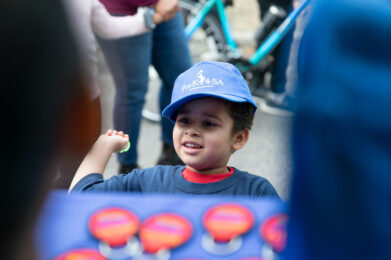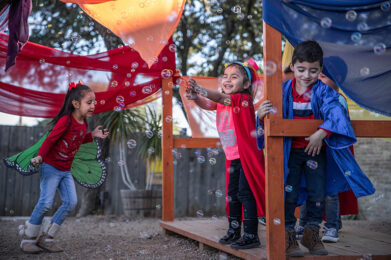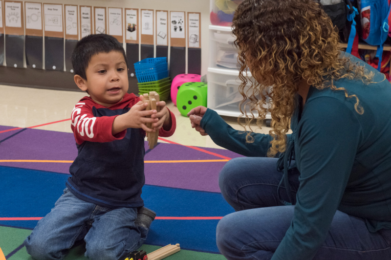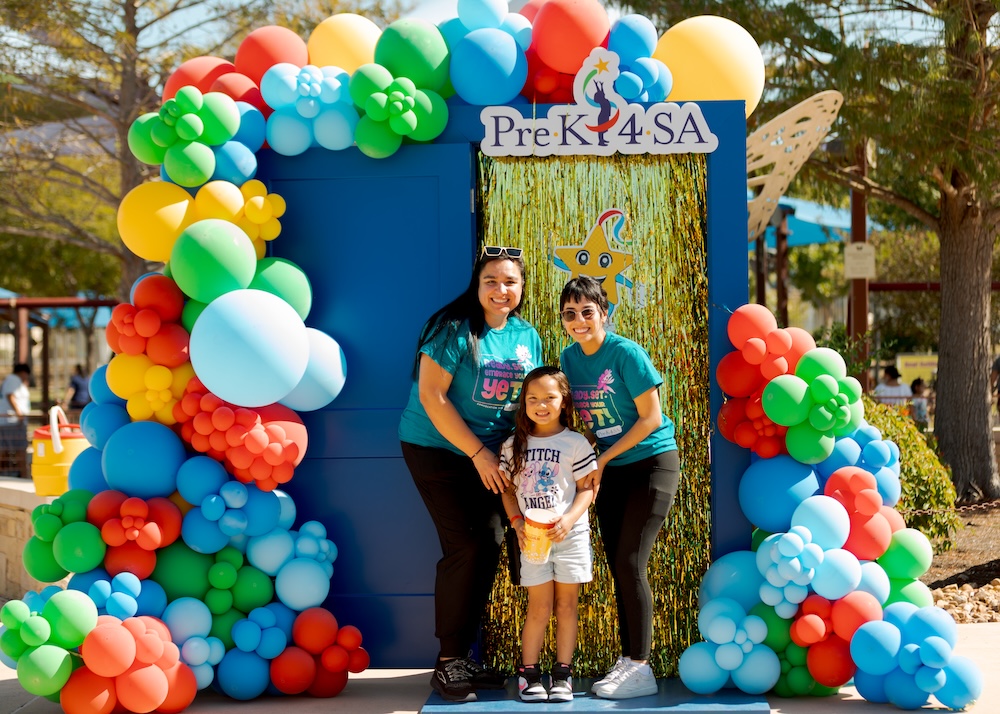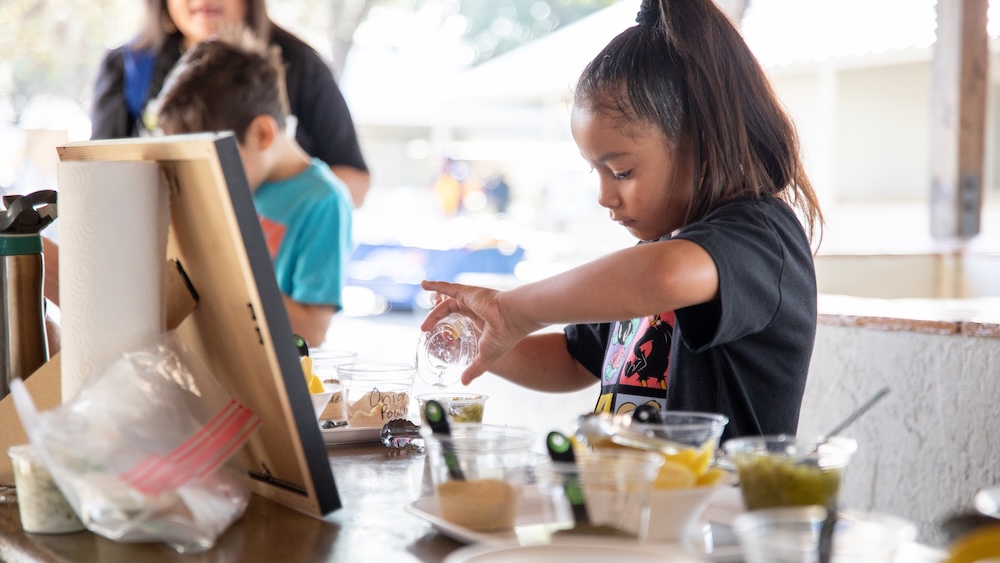Starting school is a significant milestone for both parents and children, particularly for those as young as 3 and 4 years old. Pre-K 4 SA Instructional Specialists have provided tips to ensure a smooth transition into this new chapter of your child’s life, offering a comprehensive guide filled with practical advice for a successful start to the school year.
Preparing Your Child for the Transition
One of the most effective ways to help your child transition into school is by familiarizing them with their new environment. Visiting the center and meeting the teacher before the first day allows your child to start building a relationship and begin feeling comfortable in their new surroundings.
Talking to your child about how their daily routine will change is equally important. Explain what they can expect during their school day, from playtime to storytime, and reassure them that they’re capable of handling these new experiences. Expressing confidence in your child’s ability to adjust can boost their self-esteem and reduce anxiety.
It’s also crucial to be patient and flexible as your child navigates big emotions about starting school. Acknowledge their fears and outbursts with kindness and care. Sharing your own experiences of feeling afraid and how you overcame those feelings can offer them comfort and a sense of normalcy.
Introducing the Concept of School in a Positive Way
Introducing the concept of school in a positive light can help set the stage for a smooth transition. If your child has older siblings, you can use their experiences as a reference point. Talk about the fun activities, new friends, and caring teachers they’ll meet at school.
For children unfamiliar with the concept of school, explain it through their daily routine, emphasizing the enjoyable activities they’ll participate in like CHEF, GRACIAS, H-E-B Read 3 and more. Remind them that school is a safe and fun place and reassure them that they’ll return home at the end of the day.
“Every small step your child takes into the classroom is a giant leap toward discovering their potential. We’re here to walk alongside them, nurturing their confidence and curiosity every step of the way.”
-Jessca Alexnader, Instructional Specialist
Easing Separation Anxiety on the First Day
Separation anxiety is a common challenge for both parents and children on the first day of school. Arriving early can allow time for extra hugs and cuddles, helping ease the transition. Acknowledge your child’s feelings by labeling them—this shows that you understand and accept their emotions, even if you’re feeling anxious too.
Discuss what will happen during the school day and create a goodbye routine that you follow consistently each day at drop-off. It’s important not to sneak away while your child is distracted; instead, say a proper goodbye and reassure them they will be picked up at the end of the day to go home and spend time with their families
Leaving promptly after saying goodbye can help your child and their teacher begin to co-regulate emotions and adjust to the new environment.
Establishing Morning and Bedtime Routines
Consistency is key when building morning and bedtime routines. These routines should be simple and effective, even on the busiest days. At bedtime, consider reading books or telling stories without electronic devices to help your child wind down. Lay everything out the night before so it’s ready to go first thing in the morning. Give your child short, 1-2 step directions at a time, and implement the same routine every day. This consistency will help them eventually complete their morning routines independently.
In the morning, allow extra time for your child to be independent. Encourage them to dress themselves and perform simple hygiene tasks like brushing their teeth and washing their face and hands. These small steps can help your child feel more prepared and confident as they start their day.
Helping Your Child Adjust to New School Schedules
Adjusting to a new school schedule can be challenging for young children. Consistency in routines can help ease this transition. Talk to your child about their new routine and what to expect each day, which can help reduce their anxiety.
Engage with your child about their day, asking questions and actively listening to their experiences. Connecting with teachers for insights into classroom activities can also help you support your child’s adjustment.
Addressing Common Challenges
Starting school often comes with challenges like adjusting to being around many other children or dealing with unfamiliar foods. Acknowledging your child’s emotions and helping them find solutions to these problems can ease the transition.
If your child struggles with eating new foods, try introducing those foods at home before the school year begins by visiting the nutrition page. Ensuring your child gets enough sleep and providing extra attention at home can also help them adjust to the long days and early wakeups.
The Best Piece of Advice for Nervous Parents
Starting school is a big adjustment for everyone, and it’s important to give it time. The first month might be tough, with some tears as everyone gets used to the new routine. However, with consistency, love, and support, your child will thrive. Stay in contact with your child’s teacher and consider volunteering in the classroom to become more familiar with their new environment.
Teaching Your Child About Sharing and Playing
At 3 and 4 years old, sharing isn’t always a developmentally appropriate expectation. Instead, focus on helping your child develop problem-solving and communication skills. These skills will naturally lead to better sharing and playing as they grow older. Encourage them to work together as a community in the classroom, using conflict resolution strategies to navigate interactions with their peers.
Getting Involved in School Programs
“Together, we nurture the seeds of curiosity and confidence, helping your child bloom into a lifelong learner.”
-Chaka Burroughs, Instructional Specialist
After the first 30 days of school, Pre-K 4 SA invites families to come into the center to share their family traditions, read their child’s favorite book, and share their child’s “all about me” poster. Pre-K 4 SA also offers several programs for families to get more involved, such as Families as Partners, PUENTES, and Civic Explorations. Parents can participate in events like Walk in Our Shoes, where they share family traditions in the classroom, help with drop-offs, or volunteer during special events like picture days and book fairs. Getting involved in these programs is a great way to stay connected to your child’s school experience and support their learning environment.
Starting school is a significant milestone in your child’s life. By preparing them with love, patience, and consistent routines, you’re setting them up for a successful and enjoyable school year.
